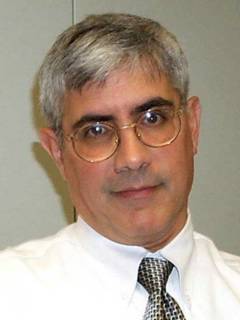Student Political Groups Court Votes -- by Molly Nevola -- Contributing Reporter WFU OGB
Over one-third of colleges and universities do not take enough action to promote and facilitate voter registration on campus, according to a survey by Harvard University’s Institute of Politics and The Chronicle of Higher Education.
The study found that at least 37 percent of the higher education institutions that participated in the survey said that their organization knowingly did not do enough to assist in students registering to vote.
At many schools, particularly Purdue University, the University of New Hampshire and Ithaca College, groups and organizations are seeking ways to increase the number of students voting in the upcoming national election. They have instituted programs such as producing an on-campus polling place, accompanying the university president to the polls and including on admissions applications questions concerning a student’s registration status.
At Wake Forest, political groups have made an effort to spread the word about registration, regardless of political affiliation. However, according to the Higher Education Act of 1998, universities must “make a good faith effort” to aptly provide students with the means to register.
“It is a law that very few people knew about, a slight amendment to a law that many are just learning about across the country,” said John Dinan, an associate professor of political science. “The law is trying to take steps to encourage. That is the idea, to encourage people to take an active part in politics and to educate students,” he said. And through classes and extra-curricular activities, Dinan said that he feels the university is doing just that.
Chairman of the College Republicans, senior Ethan Kirby-Smith agreed with Dinan and said that the university as a whole is making a “good faith effort.”
However, junior Jennifer Barker, a member of the College Democrats’ executive board, said that she believes the university has minimally helped facilitate voter registration. As a freshman student adviser, Barker said that although the university seemed to be emphasizing the election by making the “Speaking of Politics ... ” event the focus of advising group discussions instead of movies in years past, student advisers were not encouraged to share information with the freshmen about how to register to vote.
“The assumption is that it’s easy and obvious to register to vote, and, while that may be true, it’s not always the case. It’s a dangerous assumption,” she said.
Barker said that although the university has been host to two presidential debates, the university has failed to bridge a connection between this legacy and the current election year in which the student vote has the potential to make a difference. She said she has observed that there has been no widespread effort on the part of the university to register student voters.
To register to vote in North Carolina, students may either obtain a form from the many groups on campus distributing them or download one from the State Board of Elections Web site at http://www.sboe.state.nc.us/ When filling out the form, students should designate their P.O. Box number and “Reynolda Station” as their current address and the last four digits of their Social Security number if a North Carolina driver’s license is not applicable. Also, if the student is registered in another state already, they should fill out Part B of the form in addition to Part C.
As for absentee ballots, registering depends entirely upon the student’s home state. All forms can be obtained on the state Board of Elections Web site for a particular state. Because of the long and somewhat complex process that absentee registering entails, the political groups on campus are encouraging students to register in North Carolina unless the student comes from a typical swing state.
“From a practical standpoint, it’s much easier to vote in North Carolina. Absentee ballots are often counted last, and the probability that they will be miscounted or not counted at all is very high,” Barker said.
Finally, early voting is also an option for students or faculty who cannot get to a polling site on Nov. 2 or who wish to avoid the rush. Voters can begin casting votes at Forsyth County Board of Elections on Oct. 14 and at six different satellite locations on Oct. 18.
According to Dinan, the early voting program is the “No Excuses” vote because students, faculty and staff can avoid long lines, the hassle of getting to the polls and the problem of conflicting schedules.

